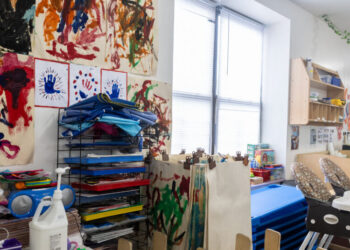Late last spring I went through a period of some personal troubles and felt I was in need of spiritual assistance. Unfortunately, I am perfectly secular, so I knew this would have to come in the form of literature — I am bookish as well as godless. I wanted a book that could offer me advice about how to, well, live the rest of my life forever meaningfully. It would be best, I thought, if this could happen as soon as possible.
I am largely a reader of novels. I once heard that reading “Moby-Dick” and lifting weights will cure you, but I had already tried both, and they do not (though I enjoy them happily). I required something instructional. I remembered then, as a former philosophy student in college, that Baruch Spinoza is often considered among the few philosophers whose work offers genuine consolation. I had long wanted to read “The Ethics,” Spinoza’s magnum opus, and thought it was finally time to be consoled by him.
The book’s argument, supposedly, is that everything one needs for salvation is already at hand. The problem was that I knew this would be hard to achieve — the book has a reputation for being abstruse. A difficult undertaking — one of the things I disliked most! And to do it all alone. It had been years since I read a book-length work of philosophy.
So I posted on my social media accounts asking friends (both real and online) if they would like to join me in reading the book together. To my surprise, nearly 40 people responded. I drafted a “syllabus” that spanned 10 weeks, two for each part of the book, and we were off. Nearly half the people dropped out after the first few meetings, but the rest remained committed: We met every Sunday on Zoom, often entering our meetings puzzled by Spinoza’s declarations — e.g., “The more reality or being a thing has, the more attributes it has” — which he offers to the reader as if they were the most obvious things in the world.
But after an hour of heady (though not too heady — it’s Sunday) discussion, we’d leave with a little more clarity on what Spinoza meant by, say, necessity and free will. Our various cats would make appearances onscreen, perhaps also having found some succor from Spinoza. Our collective mood by the time we arrived at the book’s final, salvific chapter was nothing short of ebullient. Union with other people, oneness with the universe, an acceptance of the paths our lives had taken — these were things that we possessed all along. I had been saved, thankfully, but I cannot tell you how. You must read the book yourself, with friends.
The group, by the end a good 15 or so people, decided there was no reason to stop with Spinoza. We needed even more salvation — like, badly. And so, over the course of the last year and a half, we’ve read a number of challenging books, books we otherwise would have never read alone. We read Henri Bergson; we read the Canadian philosopher Ian Hacking; we’re currently finishing “Objectivity,” by Lorraine Daston and Peter Galison, a book that argues our concept of scientific objectivity — like gender, pleasure and artistic value — is historically determined. I admit that I’ve proposed all the titles, each being in some way thematically linked to the book we read previously. So ideally, like Borges’s Library of Babel, this book club could continue infinitely, or at least close to it.
What is the point of this? Why are we doing this to ourselves? Is it merely a fetish for finishing a difficult book, the self-flattery it permits? None of us are academic philosophers, by any means; we have busy jobs and other pressing adult responsibilities. But the process has proved fruitful. A camaraderie emerges, I’ve found, when a group dedicates itself to a task that requires great effort. The experience is also frequently amusing: Half the meetings during our read of “Anti-Oedipus,” a critique of psychoanalysis by Deleuze and Guattari, were dedicated to complaining about the authors’ half-grinning disdain for their readers. (“Literature is like schizophrenia,” they write.) Needless to say, I loved the book. Learning is both painful and pleasant — and above all, communal.
The idea of a difficult reading club doesn’t need to be dedicated to philosophy; we can never know from which knotty corner the world will reveal something essential about our lives. What matters, I believe, is the challenge, regardless of whether that work yields anything concrete. It’s the process itself that is instructive.
I’m not trying to transform philosophy into another form of self-help, I promise. (I don’t know what the cultural theorist Adorno would have to say about this. I don’t want to know, because I’ve never read him, as he is hard to understand.) I like cartoons and evening champagne and spending an hour looking at Instagram reels in bed. I like easy things too. But I’ve found, as I have grown older, the world has incrementally foisted upon me a preponderance of quick and simple easiness; it’s inescapable. What’s more, I like it! I like it too much! And reading a difficult book is not going to change that, or anything.
Still, for at least a few hours a week, I have a chance to dedicate myself, among friends, toward material that requires sincere mental devotion, and I feel the satisfying kind of exhaustion. It’s fitting we began with Spinoza, both in my life and in this essay. He ends “The Ethics” with the following injunction, translated here by Samuel Shirley: “If the road I have pointed out as leading to this goal seems very difficult, yet it can be found. … All things excellent are as difficult as they are rare.”
The post The Secret to Getting Through Big, Dense, Difficult Books appeared first on New York Times.




